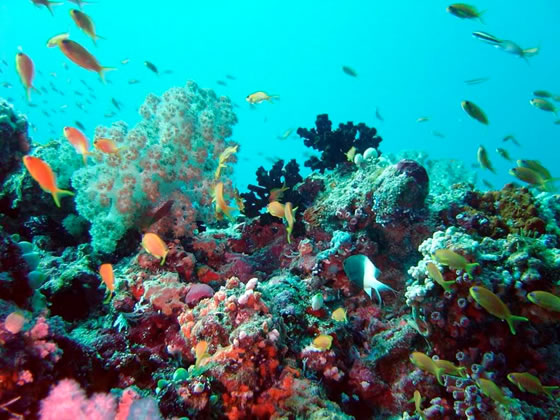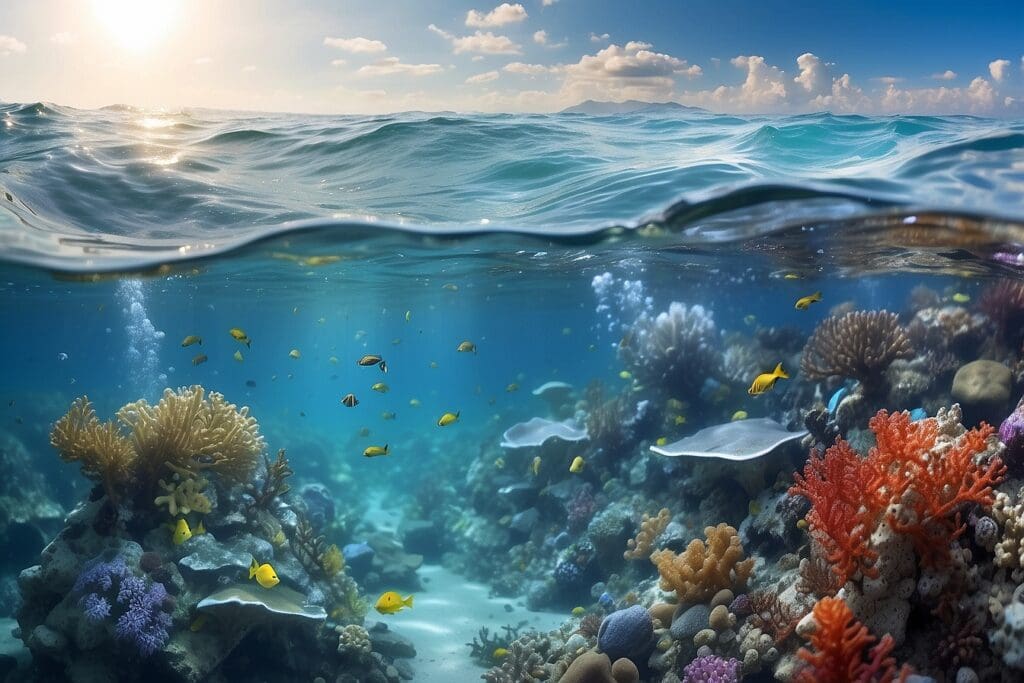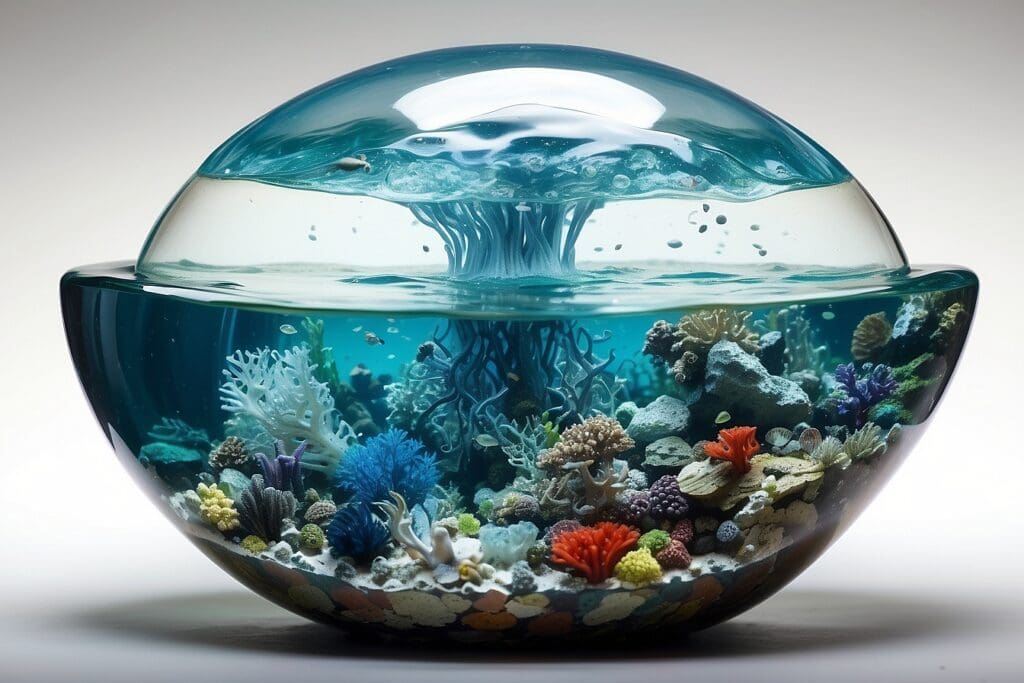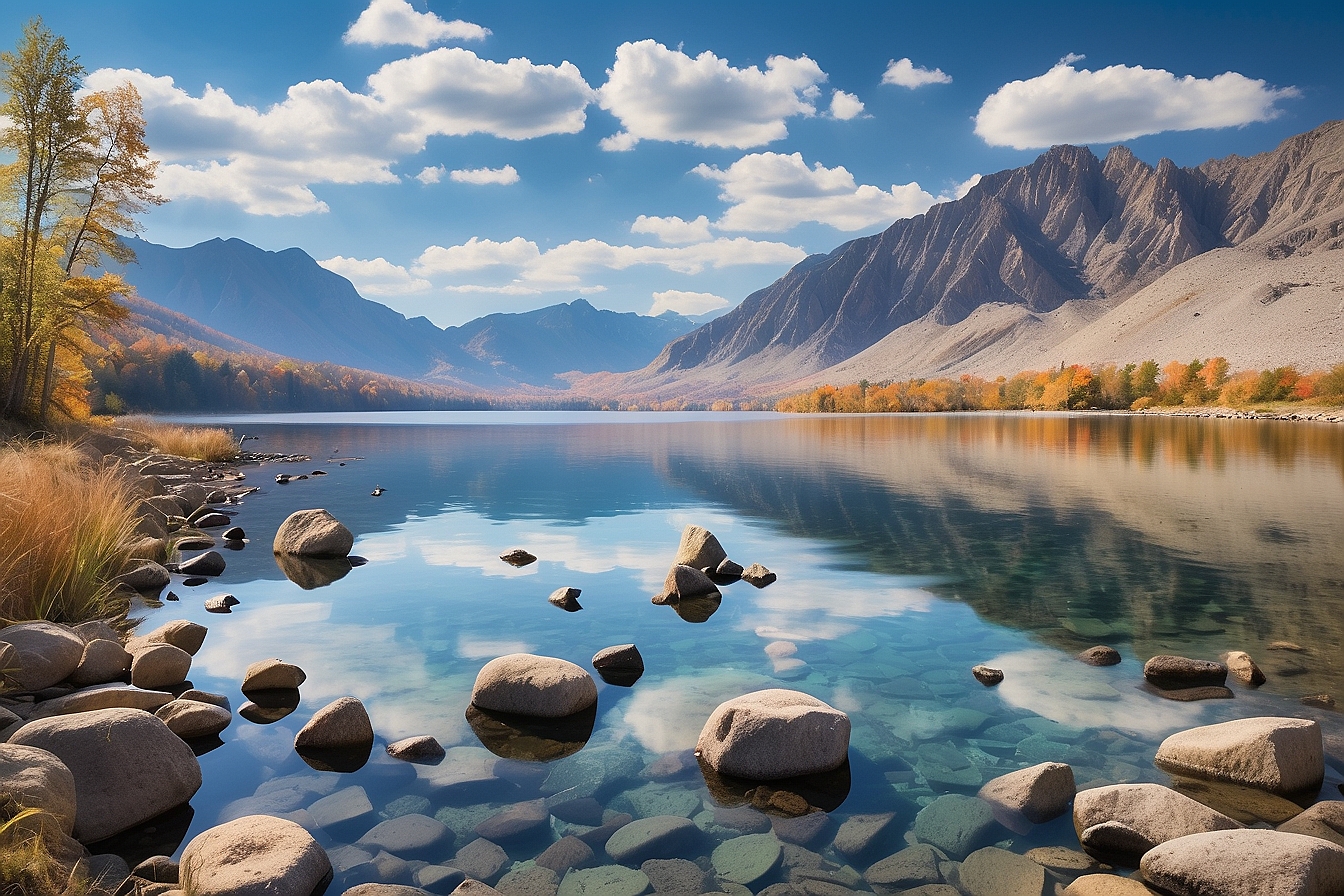Recently The New York Times ran a full-scale editorial covering the human-induced change in the world’s ocean chemistry.1 When an environmental issue merits this kind of attention from the Times, you know it’s a sign that the issue has broken out of the scientific literature and into the popular consciousness. Recent scientific findings related to ocean acidification, and the raising awareness of the issue warrant an update to an Ocean Acidification article featured on Greeniacs in early 2009.
 2
2
Healthy Coral Reef
One consequence of human-released carbon dioxide in the atmosphere is an ocean significantly more acidic than it was just a few generations ago, and this change is accelerating in tandem with our carbon dioxide emissions. The most recent scientific article on the phenomenon appeared in Science Journal.3 Researchers from Columbia University discovered that the oceans are acidifying faster than any point in the last 300 million years due to human-created carbon emissions. This was the first survey of the geologic record for evidence of ocean acidification over a vast time period. Atmospheric carbon dioxide levels have risen 30 percent in the last century, forcing the pH levels of the ocean down by 0.1 unit in the last century, which is 10 times faster than the closest historical comparison from 56 million years ago. According Baerbel Hoenisch, the lead author of the Columbia study, instances of ocean acidification have been linked with mass extinctions of marine creature—thus our current rate of acidification could certainly also threaten important species. Salmon and coralecosystems are at especially high risk, as are coastal waters that may soon be plagued by outbreaks of toxic jellyfish and algae.4
This most recent Science article joins a host of others that cover similar ground, each illustrating major ecological changes (such as mass extinctions) associated with changes to atmospheric chemistry more mild than the one we’re now experiencing.6;7 We are truly living in a no-analogue future, conducting a massive and uncontrolled chemistry experiment on the scale of the entire planet. For more on the importance of oxygen to our waters, check out this Greeniacs article: Dead Zones
What remains to be seen is whether we have the political will to change human behavior before it becomes impossible to lessen the changes we’ve wrought. In preparation for the 2010 UN Framework Convention on Climate Change meeting in Cancun, Mexico, the UN Environment Program released a report that warned carbon emissions from fossil fuels may bear a greater risk for the marine environment than previously thought.8 And yet no binding decisions were made at that conference or at the November 2011 conference in Durban, South Africa.

President Obama did sign an Executive Order in 2010 that establishes a National Policy for the Stewardship of the Ocean, Coasts, and Great Lakes.10 The Executive Order adopts the Final Recommendations of the Interagency Ocean Policy Task Force,11 which highlighted the importance of ecosystem health and biological diversity to human well-being, acknowledged the threats of greenhouse gas emissions and stave ocean acidification. If measures to cut emissions are not stepped up, a recent study called “Valuing the Ocean” predicts that the cost of damage to the world’s oceans from climate change could reach $2 trillion a year by 2100;12 not to mention the irreplaceable beauty of the world’s coral reefs.





